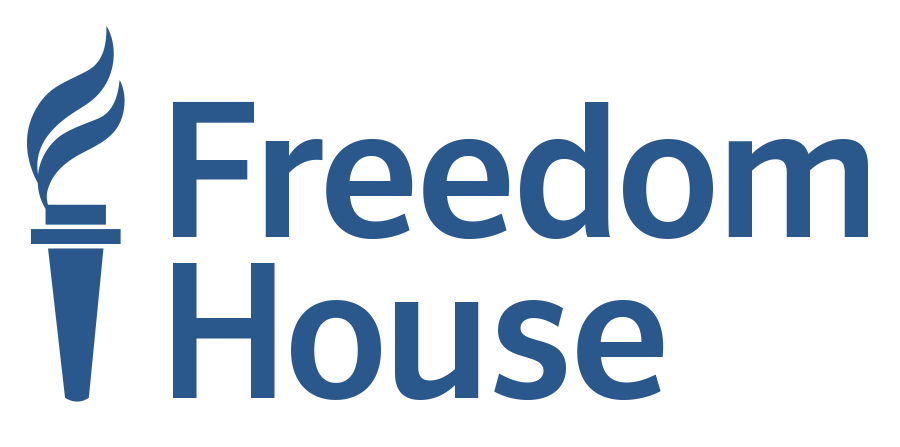
WASHINGTON, 16.01.2018. – A new report from the US rights watchdog says lack of media freedom, corruption, and weak institutions remain issues throughout the Balkans – but singles out Serbia’s growing authoritarianism as a matter of concern.
The US-based watchdog Freedom House’s annual Freedom in the World report, published on Tuesday, marked Bosnia, Montenegro, Kosovo, Macedonia and Albania as only “partly free”, while some countries, like Serbia, experienced a downward trend.
In Serbia, the report warned that the EU’s tolerance of President Aleksandar Vucic’s authoritarianism had allowed him to ”further sideline the opposition and undermine what remains of the independent media after winning the country’s presidency in April”.
“Serbia received a downward trend arrow due to … Vucic’c continued consolidation of power, including through opaque party financing methods, politicization of law enforcement, and attempts to undermine critical journalists with financial investigations and smears in government-friendly media,” it said.
An editor with Freedom House, Shannon O’Toole, told BIRN that independent journalists and NGO workers in the Balkans have done indispensable work exposing crime, corruption, and right abuses.
“And they do this knowing that they could face intimidation or become the target of smear campaigns, or even experience physical violence as a result of their work. International organizations have a duty to help empower them as they work to defend political rights and civil liberties across the region,” she added.
The report said that events in the Western Balkans demonstrated a need for continued engagement in the region by major democracies.
“In Macedonia, mediation by Washington and Brussels helped resolve a years-long political crisis, paving the way for a new, democratically elected government,” the report pointed out.
The annual report on political rights and civil liberties evaluated the state of freedom in 195 countries and 14 territories during 2017.
In Bosnia, the report said that politics remain characterized by severe partisan gridlock among nationalist leaders of the country’s Bosniak, Serb, and Croat communities.
“Corruption remained widespread, and there remains little political will to combat it. Educational institutions remain ethnically fractured,” the report underlined.
It added that Bosnian journalists continue to face obstruction and harassment.
The report added that Bosnia’s NGO sector remains robust. “However, organizations and individuals do encounter interference and pressure from political and other figures.”
In Kosovo, the report underlined that while the country holds credible and reasonable well-administered elections, its institutions “remain weak” and the court system is “notably underdeveloped, and access to due process is not guaranteed”.
“The media environment has not improved. Journalists continue to face harassment, intimidation, and physical attacks,” it said.
In Albania, the Freedom House report said the country has a record of competitive elections, although parties are highly polarized and often focused on leading personalities.
“Monitors found the 2017 parliamentary elections to be generally orderly and credible, though there were reports of vote-buying and procedural problems, and the vote was delayed due to an opposition boycott,” it noted.
“Corruption remains a concern, and the intermingling of powerful business, political, and media interests inhibits the development of truly independent news outlets,” it added.
Bulgaria has a democratic electoral system that has seen several transfers of power between rival parties in recent decades, the report said. However, it added, political corruption and organized crime remain problems.
“Political discourse is marred by hate speech against minority groups and foreigners, especially from smaller, right-wing parties,” it warned.
The Bulgarian media sector, it said, remains pluralistic but ownership concentration is a problem, and news outlets often tailor coverage to suit the interests of their owners.
It also noted that while the flow of refugees and migrants into the country decreased in 2017, their mistreatment by security forces and vigilante border patrol groups is a matter of concern.
The report said that in Croatia, civil and political rights are generally respected, “though problems with corruption in the public sector persist”.
It noted that the government has been hesitant to address concerns about politicization of reforms to the education system.
“Far-right elements coalesced around a movement aimed at defending a slogan associated with the Nazi-supported Ustaše regime that ran Croatia during World War II,” it added.
On Montenegro, the report pointed out that a political and institutional crisis continued in 2017, as the opposition maintained its boycott of the parliament, claiming that the 2016 elections were fraudulent.
It also said that journalists in Montenegro continued to face political pressure, and the media landscape remains highly partisan. It noted that the public broadcaster demonstrated increased independence in 2017, but the shift prompted criticism of the broadcaster by ruling party members.
The report said Romania’s multiparty system has ensured regular rotations of power.
“Civil liberties are generally respected, though ongoing concerns include police brutality, and discrimination against Roma and other vulnerable groups,” it said.
It added that civil society is robust and plays a key role in holding the government and lawmakers accountable.
The report recalled that, in 2017, there were major protests against proposals seen as damaging to anti-corruption efforts.
“A number of television broadcasts that aired while early-year anti-corruption protests were taking place made false claims about the protests’ nature, including that demonstrators sought to stage a coup, or were funded by the Hungarian-American philanthropist George Soros,” the report noted.
It concluded that concerns remain about the poor conditions in Romania’s prisons.